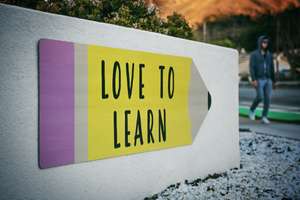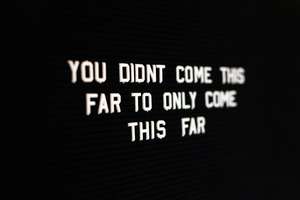
Learning from living: Organize, Act, Evaluate
We often get into pothole, on treadmills, caught up in daily habitual patterns that aren't useful and meaningful. We keep doing the same things in our life everyday, every week, every month - fighting the same problem, struggling with the same weaknesses, repeating the same mistakes. We don't really learn from our lives. And we don't stop to ask: What can I learn from this week that will keep next week from essentially being a repeat of the same?
Evaluation
The value of any week is not limited to what we do in it; it's also in what learn from it and become as a result of it. For this reason, no week's experience would be complete without some kind of evaluation that enables us to process it.
Evaluation is the final step - and the first step - in a living and learning cycle that creates an upward spiral growth. It takes us back to the beginning of the process again, but with greater capacity. As we learn from living, we're better prepared to review our mission and roles, set goals, create a framework for a new week and act with greater integrity in the moment of choice.
As we organize, act, evaluate ... organize, act, evaluate ... organize, act, evaluate again and again, our weeks become repeating cycles of learning and growth.

The living and learning cycle is the spirit of kaizen --- the Japanese word for the spirit of continuous improvement. It's in direct contrast to the Western mentality of "If it ain't broke, don't fix it!"

It's applying Peter Senge's Fifth Discipline of effective, learning organizations on a personal basis:
Real learning gets to the heart of what it means to be human. Through learning we re-create ourselves. Through learning we become able to do something we never were able to do. Through learning we extend our capacity to create, to be part of the generative process of life. There is within each of us a deep hunger for this type of learning.
Recognition of the importance of the evaluation process is reflected in what's often called the Growth Cycle or the Evaluation Cycle, variations of which are used in the Total Quality Movement and other processes focussed on improvement and growth. Through weekly evaluation on a personal basis, we increase self-awareness, educate our conscience, and build effective habits of the heart.

It's important to use your compass -- to be deeply honest and self-aware when evaluating your week with questions you prepare for yourself to answer. It helps to connect with conscience, to use independent will and creative imagination to consider possibilities and commit to positive change.
It's also helpful to see each week as it connects to every other week.
The repeated process of organizing, acting and evaluating helps to see the consequences of our choices and actions more clearly. It's the four endowments in action. It empowers us to learn from living and to live what we learn.

The above post is an excerpt from the book First Things First by Stephen R. Covey, A. Roger Merrill and Rebecca R. Merrill

Comments